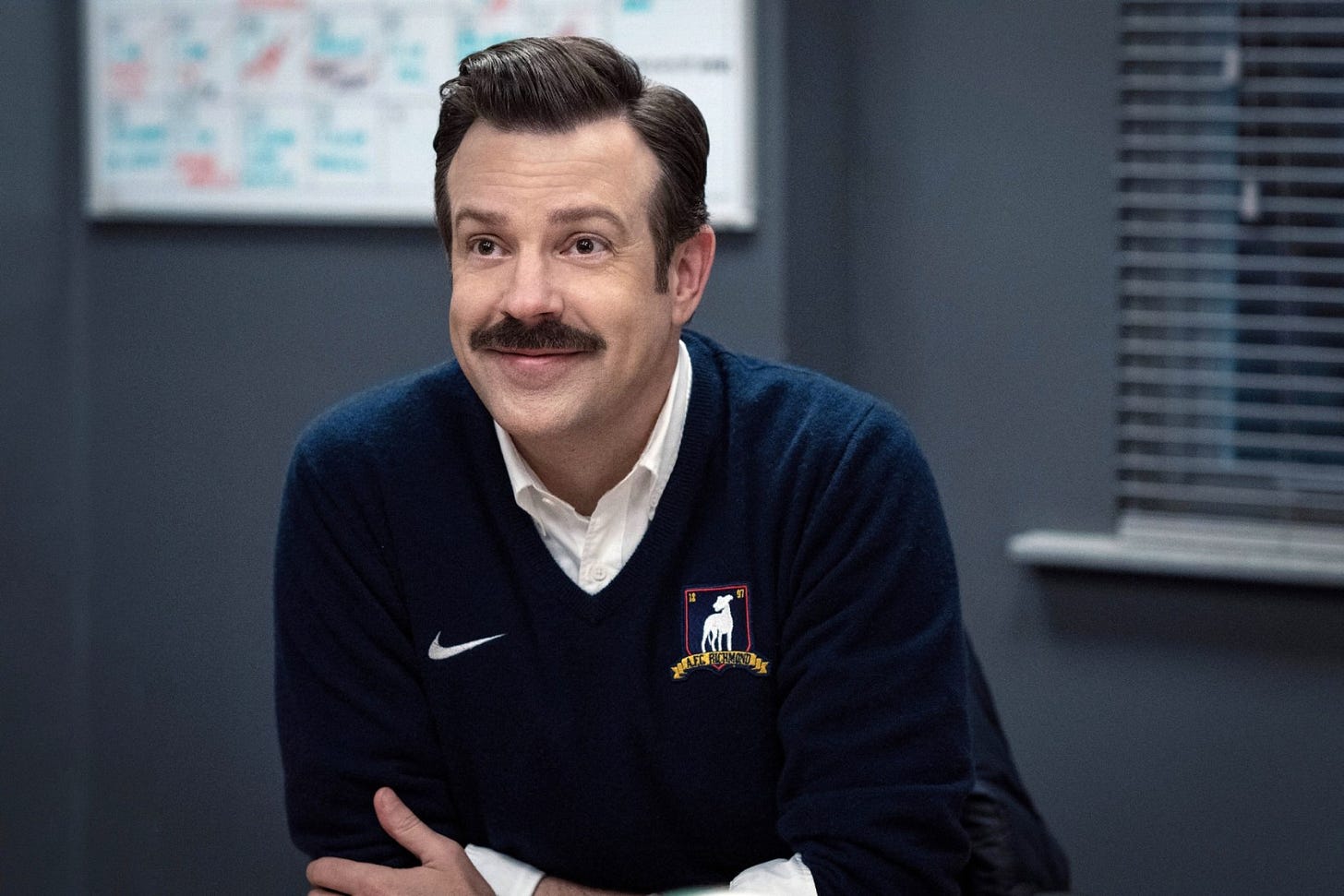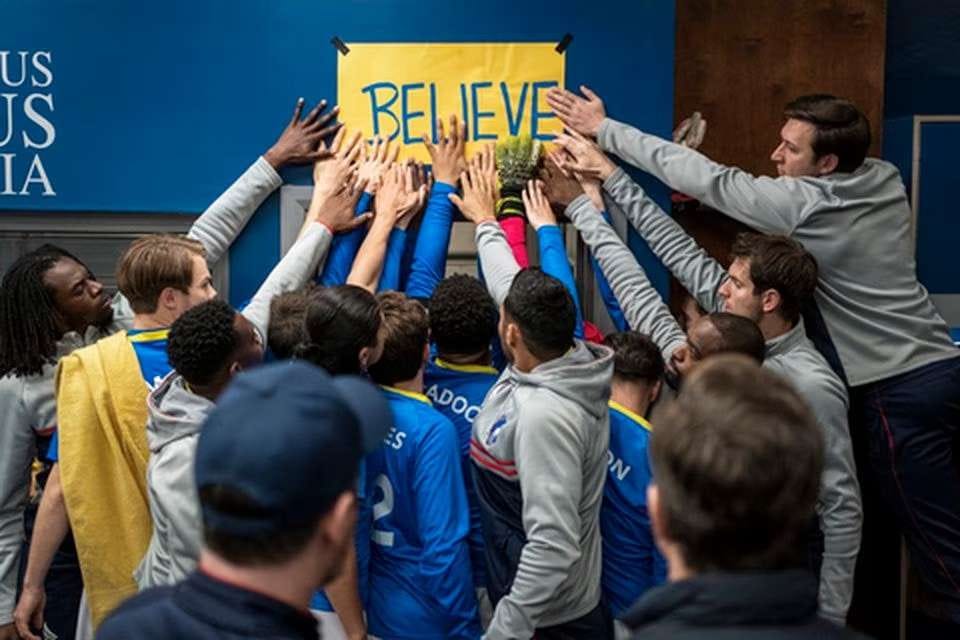Not Just a Coach: Ted Lasso as a Freirean Educator
How Six Key Scenes from the Series Illustrate a Pedagogy of Love, Dialogue, and Transformation
Few contemporary television characters have captured the public imagination like Ted Lasso. At first glance, the premise of the show seems absurd: an American football coach with no experience in soccer is hired to manage an English Premier League team. But beyond the fish-out-of-water comedy lies something much deeper: a quiet, radical commitment to care, listening, vulnerability, and human growth—a commitment that echoes the philosophy of Paulo Freire.
Brazilian educator Paulo Freire, best known for his book Pedagogy of the Oppressed (1970), argued that education should be an act of liberation. Teachers, in his view, are not simply depositors of knowledge but facilitators of dialogue, partners in inquiry, and builders of community. Education, when practiced with love and humility, becomes a tool for social transformation.
Ted Lasso, knowingly or not, lives out these principles. Here are six scenes—presented in the order they appear on the show—that highlight how Ted embodies a Freirean pedagogy of presence, justice, and love.
1. “Tan Lines” (Season 1, Episode 5)
Ted’s team, AFC Richmond, is struggling, not just with results, but with morale. In this episode, star player Jamie Tartt refuses to pass the ball to teammate Sam Obisanya, choosing instead to score solo and bask in the applause. The moment oozes tension. Rather than scolding or punishing, Ted makes a controversial decision: he benches Jamie for the second half.
The crowd boos. The press questions him. But Ted remains calm. Richmond goes on to win the match with teamwork, not star power—and Sam scores the winning goal.
This scene demonstrates Freire’s belief in co-intentional education—the idea that learning is built collectively. Ted invites his players to see each other, to trust the group, to let go of ego. It is a lesson in solidarity.
As Freire wrote:
“The teacher is no longer merely the-one-who-teaches, but one who is himself taught in dialogue with the students, who in turn while being taught also teach.”
Ted teaches through action, not imposition. He redefines leadership as listening.
2. “The Hope That Kills You” (Season 1, Episode 10)
When Ted learns of Rebecca’s sabotage in the finale, he is visibly shaken. Instead of reacting with anger, he forgives her, saying, “I forgive you.” This moment is disarming. Rebecca expects confrontation, maybe even cruelty. What she gets is grace.
In Freirean terms, Ted practices a pedagogy of hope: he believes in people’s capacity to change. He understands that transformation is relational and requires radical empathy. As Freire suggests, forgiveness and hope are acts of courage that affirm our belief in human potential for transformation.
Ted’s nonviolent ethic, his refusal to dehumanize even those who wrong him, is profoundly pedagogical.
3. “Man City” (Season 2, Episode 8)
After a devastating loss to Manchester City, AFC Richmond’s locker room is heavy with silence. But for Ted, the match isn’t the most important part of the day. He sits with Sam, who has just broken up with his girlfriend, offering presence rather than advice.
Meanwhile, assistant coach Beard confronts Jamie’s abusive father in a tense scene. Roy Kent, Jamie’s old rival, witnesses this, and when Jamie breaks down in tears, it is Roy who walks over and hugs him.
The moment is wordless, but transformative. These are acts of humanization—a central concept in Freire’s work. To humanize is to restore dignity through love, silence, and solidarity. Freire emphasizes that the central task of the educator is to affirm others as beings capable of acting upon and transforming their world.
4. “No Weddings and a Funeral” (Season 2, Episode 10)
Ted has spent most of the series hiding his mental health struggles. In this episode, during a therapy session, he finally opens up about his father’s suicide. The scene is quiet, vulnerable, and beautifully shot. Ted is not trying to be strong. He is trying to be real.
Freire’s work in Pedagogy of Freedom emphasizes that teachers are not superhumans. They are people—with histories, wounds, contradictions. To teach ethically is to teach from our full selves, including our pain:
“There is no such thing as neutral education. Education either functions as an instrument which is used to facilitate integration of the younger generation into the logic of the present system and bring about conformity or it becomes the practice of freedom.”
By showing his vulnerability, Ted models a new kind of leadership—one based on authenticity, not authority.
5. “Mom City” (Season 3, Episode 11)
In this episode, Jamie confronts his past in Manchester, including his relationship with his father, while Ted reconnects with his own mother. The show explores the pain and healing found in family relationships, but Ted does not have a significant one-on-one walk-and-talk with Jamie about family. Instead, the episode weaves together the characters’ parallel journeys toward understanding and reconciliation.
This echoes Freire’s idea of dialogue as a cornerstone of education. Dialogue, for Freire, is not about transmitting knowledge—it is about creating space where the other is heard, and through hearing, transformed:
“Dialogue cannot exist without humility. The naming of the world, through which people constantly recreate that world, cannot be an act of arrogance.”
Ted does not force insight on others. He walks beside them, with humility.
6. “So Long, Farewell” (Season 3, Episode 12)
In the final episode, we see the full arc of Ted’s pedagogy. He leaves Richmond not with a trophy, but with a team that has learned to care, to play, to forgive, and to grow. Roy becomes coach. Nate returns. Jamie becomes generous. Rebecca finds peace. And Ted, after planting so many seeds, quietly goes home.
There is no dramatic speech, no hero’s reward. Just a feeling that something good has taken root.
This is Freire’s vision of education as a praxis: the intersection of reflection and action. Ted’s presence has altered everyone, not through domination, but through love.
Freire writes that what the educator does in teaching is to make it possible for students to become themselves.
Final Thoughts
Ted Lasso may not know Paulo Freire’s work, but he lives it. His coaching is not about control, but accompaniment. His classroom is the locker room. His blackboard is the shared joke, the kind word, the open door. He teaches us that education, at its core, is a human act—one rooted in faith, love, and hope.
In times of burnout, cynicism, and pressure to perform, we may find unexpected guidance in stories like this. Stories that remind us: it is possible to lead with joy, to teach with empathy, and to believe, again, in transformation.






I haven't seen Ted Lasso, but now with to do so. You have beautifully woven Paulo Freire's educational premises with this series. Thanks for this gift.